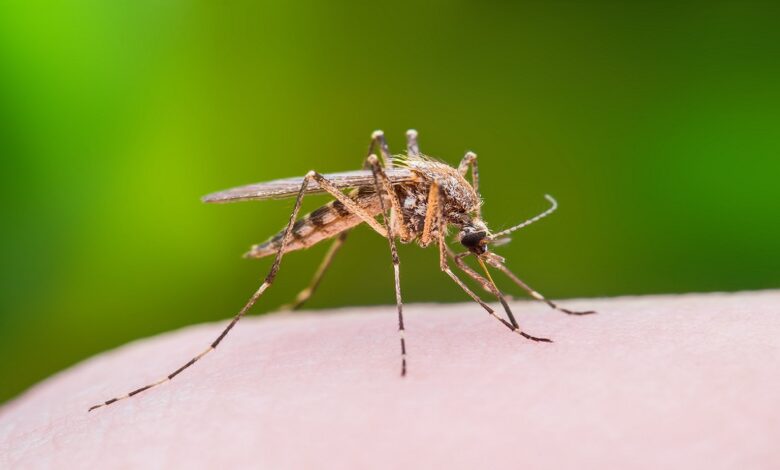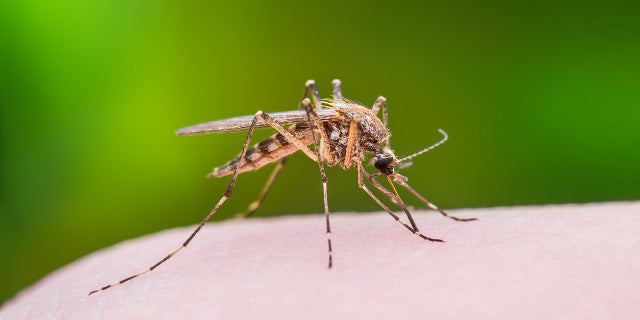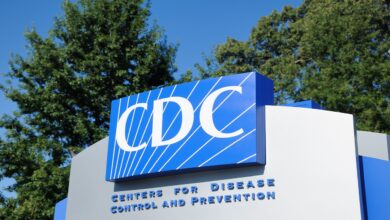Multiple states warn on West Nile virus risk amid peak period

At least eight state health departments have cautioned residents over West Nile virus risk in the last week amid a seasonal peak and cases reported in humans and animals, on the rare occasion resulting in death.
State health officials from Connecticut, Idaho, Massachusetts, Utah, North Dakota, Louisiana, Delaware and New Hampshire released preventive guidance on West Nile virus, the leading cause of mosquito-borne disease in the U.S., according to the Centers for Disease Control and Prevention.
The virus is often spread through the bite of an infected mosquito, with cases typically occurring from summer through fall. There are no medications or vaccines for West Nile virus and officials say the best way to avoid infection is by preventing mosquito bites.
CLICK HERE FOR FULL CORONAVIRUS COVERAGE
Dr. Philip Armstrong, a medical entomologist at the Connecticut Agricultural Experiment Station, reported a late-season surge in infected mosquitoes, noting that the risk of contracting West Nile virus will continue until October, when mosquito activity ends. The state reported a third resident, aged 50-59 of Hartford, infected with the virus. The resident is recovering after experiencing encephalitis, officials said.

At least eight state health departments have cautioned residents over West Nile virus risk in the last week amid a seasonal peak and cases reported in humans and animals, sometimes resulting in death.
(iStock)
Meanwhile, as of Sept. 1, Idaho detected West Nile virus activity in new areas this season, noting six human infections all with severe neurologic disease, including one death. Last year, there was one reported human infection in the same timeframe.
“The conditions are right for mosquitoes to transmit the virus now until a killing frost eliminates the mosquito populations,” Dr. Leslie Tengelsen, Idaho state public health veterinarian in the Division of Public Health, Department of Health and Welfare, said in a statement. “Idahoans should assume that WNV is a risk anytime and anywhere mosquitoes are active.”
WEST NILE VIRUS OVERLOOKED DURING CORONAVIRUS PANDEMIC? PUBLIC HEALTH EXPERT CITES SIMILAR SYMPTOMS
Symptoms of infection can include fever, headache, body aches, nausea, swollen lymph glands and a skin rash, though infection can result in severe illness, particularly among adults age 50 and older. In severe cases, infection can cause high fever, severe headache, stiff neck, altered mental state and death, officials note.
Massachusetts officials announced the year’s first animal case, and four human cases earlier this month. The state also raised the West Nile virus risk level from moderate to high in 27 communities given rainfall, weather conditions suitable for mosquito activity, human and animal infections and more mosquitos carrying the virus.
“September is the month when we are most likely to see people get infected with West Nile virus,” Acting Public Health Commissioner Margret Cooke said in a statement. “While we advise everyone to take steps to avoid mosquito bites, this is especially important if you are over the age of 50 or have an immune compromising condition. It is also important to know that as overnight temperatures get cooler, mosquito activity right around dusk and dawn may be more intense.”
In addition, Utah reported the highest number of mosquito trap sites positive for the virus in the state’s surveillance history, and North Dakota health officials on Sept. 10 announced the state’s first West Nile virus related death in 2021 in a resident over age 60 in southwest North Dakota. What’s more, Delaware recently reported a 69-year-old Kent County man infected with West Nile virus, the state’s first such case since 2018.
CLICK HERE TO GET THE FOX NEWS APP
In the wake of Hurricane Ida, Louisiana health officials said the state expects heavy mosquito activity and is taking measures to tamp down breeding sites and lessen the spread of mosquito-borne diseases. Officials reported seven West Nile virus cases in 2021.
According to Dr. Benjamin Chan, New Hampshire state epidemiologist: “Until there is a statewide mosquito-killing frost, it remains important for everybody to take steps to prevent mosquito bites, including wearing long sleeves, using an effective mosquito repellant on exposed skin, and avoiding outdoor activities at dawn and dusk when mosquitos are most active.”
Other preventive steps include removing standing water and cleaning roof gutters, repairing any damaged screens in doors and windows and wearing insect repellents containing DEET.
Source link





